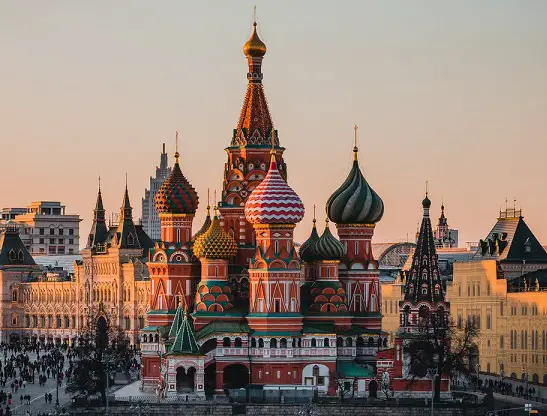Although he admits the US is still, “a ways away” from successfully imposing a diplomatic price cap on Russian crude oil sales, a senior Biden administration energy advisor says he remains hopeful they will be able to impose it.
However so far, Russia’s most enthusiastic buyers, such as India and China, are showing little interest in such a scheme.
Amos Hochstein, Special Coordinator for International Energy Affairs for President Biden, said he remains confident he can convince Russia’s energy buyers that the nation would continue to sell them crude at the cap-price, because, “their economy has nothing else.”
In an interview, Hochstein said, “We already are seeing evidence in the market that Russia is selling its oil at a significant discount. So we wanna put that max. So we know that they’re willing to sell it at a discount in order to be able to sell it, because frankly they have cash in the bank, that is true, but they don’t have anything else.”
Their strategy in imposing a price cap is to negotiate a diplomatic deal with Russian oil purchasers to refuse to purchase the crude at anything above the price cap. Their argument to purchasers is, if they all impose the cap together, Russia will still have to continue to supply the crude oil, only at the cheaper price, and the purchasers will benefit.
However Russian Central Bank Governor Elvira Nabiullina has said Moscow will not supply crude to any country that chooses to impose the price cap on its oil shipments. Nabiullina said to reporters, that any country which imposes such a cap will see its oil shipments redirected to other countries that are ready to “cooperate” with Russia.
The Biden administration has pursued the price cap idea because while they want to limit the revenues Russia is seeing from its oil sales, in part to limit its financial ability to fund the war in Ukraine, the oil market globally is too tight to allow the Russian supply to be cut off, such as with an embargo of all Russian oil. Some analysts have even proposed that were President Putin to merely restrict the supply of Russian oil moderately, in ways that would barely affect the Russian economy, oil could reach as high as $380 per barrel. Were Russian oil to be completely removed from the global market, the effect on global economies would be nothing short of cataclysmic.
It is hoped that price caps would allow Russian oil to still enter the global market, while simultaneously restricting Russian profit from the sales.
However even some EU countries have been cool to the idea of imposing price caps for fear Russia would cut off their supplies of critical energy commodities.
The G7 nations have agreed in principle last month to explore ways to restrict, “all services, which enable transportation of Russian seaborne crude oil and petroleum products globally, unless the oil is purchased at or below a price to be agreed in consultation with international partners.” However Hochstein says as of now, the US has yet to develop the specifics of any framework of a global price cap imposed through transportation of the product.
Hochstein said “We’re trying to perfect the mechanism of how that would actually look and how it would work. We’re not at a point where we have an agreement. We have an agreement in principle with the major economies, but not an actual agreement.”
Brent crude, the global benchmark, has fallen considerably since it reached highs near $40 per barrel after Russia first invaded Ukraine. It landed near $103 per barrel Friday, although it should be noted, that is still a gain of 30% this year.
US crude has fallen below $95 per barrel for the first time since April, after EU member states issued a decision allowing for the adjustment of sanctions, which would allow Russian state owned companies to ship crude to third countries in trades organized by EU trading houses.
Critics of the price-cap policy remain skeptical of its efficacy, mainly because so far Russia’s top buyers, India and China have shown no interest in it, for fear of disrupting their long term relationship with Moscow.
Since Russia began its military operations against Ukraine, China has doubled its already voluminous imports, to roughly 1 million barrels per day. Meanwhile India’s imports have surged 24-fold, to 600,000 barrels per day.
Jorge Montepeque, who reformed benchmark oil pricing, noted in an interview, price mandates have been tried before and failed. He said, “The U.S. tried to fix prices for oil in the 1970s, the U.K. tried fixed forex prices in the 80s, Mexico tried fixed tortillas prices. And then — boom! — the market settles. It is a waste of time.”
Hochstein meanwhile still has faith in the idea of price-caps, arguing, “every country wants to pay as low a price as possible.” He added of Russia, “Their economy has nothing else. They produce weapons and they produce and they drill for oil and gas.”

